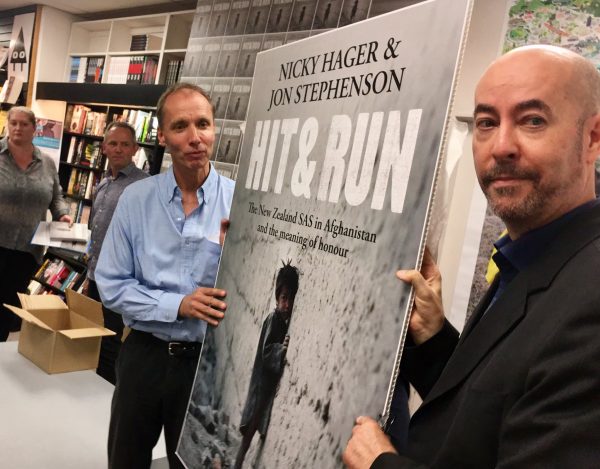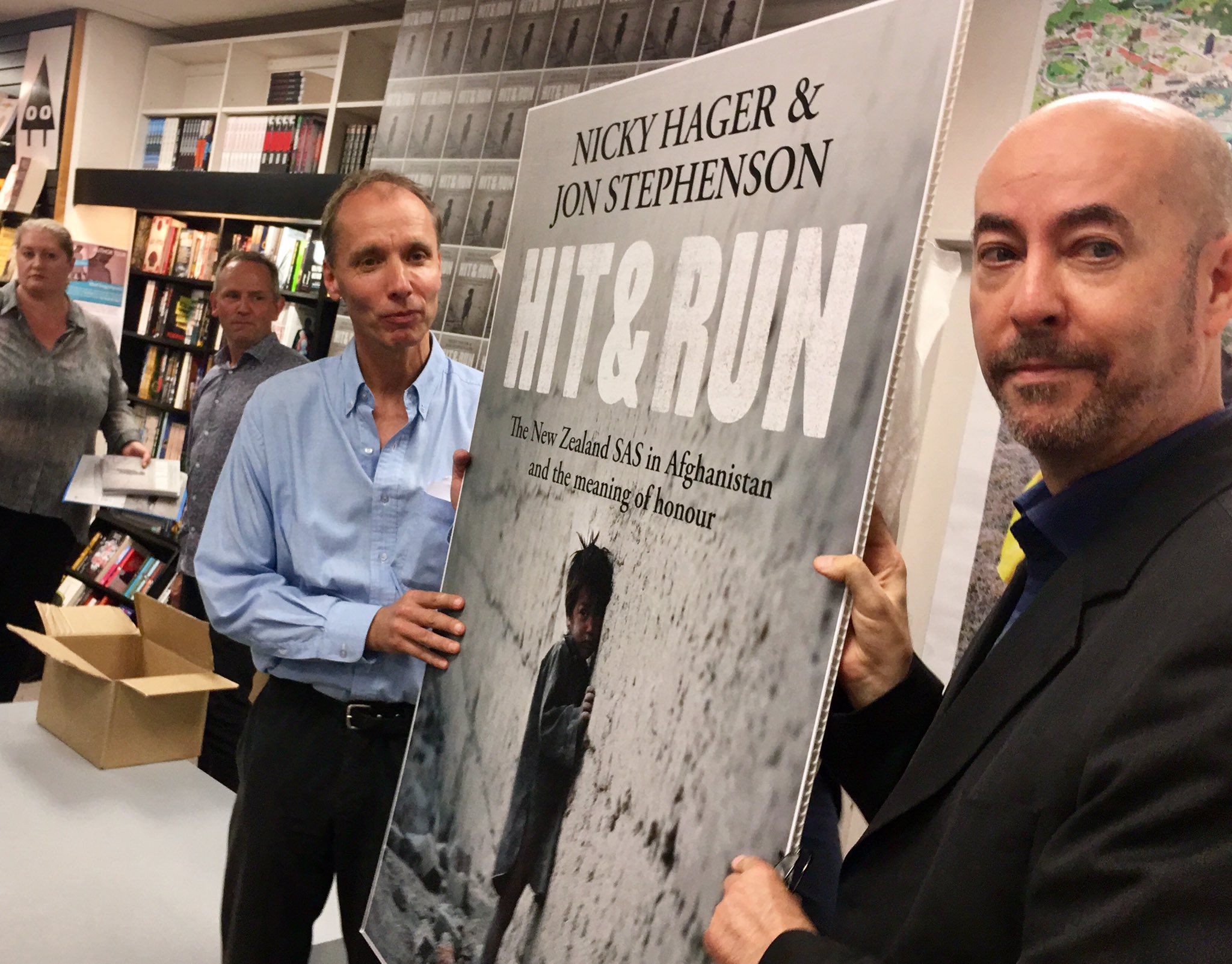
I consider Graeme Edgeler to be one of NZs finest legal minds.
The guy is bloody smart, and listening to him should be the first thing any political junkie wanting real insight should do.
So his latest blog on why NZ is well past the evidential threshold for a war crime in the Nicky Hager and Jon Stephenson Hit and Run book is well worth reading.
Edgeler makes the case that NZ is a signatory to the Rome Statute of the International Criminal Court…
New Zealand has adopted the Rome Statute of the International Criminal Court. This treaty forms part of New Zealand domestic law. As part of the International Crimes and International Criminal Court Act, it makes a number of actions, long-recognised internationally as war crimes, express crimes under New Zealand law. A couple of these are in issue to this allegation. Section 11(2) of the Act, and Article 8(2)(b) of the Statute include the following as war crimes:
- (v) Attacking or bombarding, by whatever means, towns, villages, dwellings or buildings which are undefended and which are not military objectives;
- (xiii) Destroying or seizing the enemy’s property unless such destruction or seizure be imperatively demanded by the necessities of war;
The maximum penalty for someone convicted of a war crime is life imprisonment.
The closing chapter of Hit & Run calls for an inquiry: (page 110)
There needs to be an independent investigation with full powers to question past and present military staff and with complete access to SAS and Defence force records.
The authors name officers, both within the SAS, and in the wider Defence force who “should all be required to appear and give evidence as part of an inquiry”, from then chief of defence LTGEN Jerry Mateparae, and others in senior leadership roles, as well as the SAS Commander, the SAS Commander in Afghanistan, and the SAS ground commander who was on the raid, listed as Captain D.
…the book already crosses the evidential threshold for a criminal investigation and NZ is signed up to international laws that impact our domestic laws.
Edgeler expands on this point…
The Rules of Customary International Humanitarian law have been helpfully summarised by the International Committee of the Red Cross, and they provide as clear an authoritative statement of New Zealand’s obligations under customary international humanitarian law as you will find:
- Rule 158. States must investigate war crimes allegedly committed by their nationals or armed forces, or on their territory, and, if appropriate, prosecute the suspects. They must also investigate other war crimes over which they have jurisdiction and, if appropriate, prosecute the suspects.
And this is the problem with all the calls for an inquiry to date. Lots of people are saying that there appear to be war crimes. No-one appears to have appreciated what that means. It means we need an investigation into war crimes. In New Zealand, this is a job for the Police.
I think about this not only from the perspective of New Zealand legal obligation to investigate allegations of war crimes, and the right of victims of alleged war crimes to have those allegations investigated, and prosecuted, but also from the perspective of those who are alleged, even if implicitly, anonymously, or collectively, to have committed war crimes.
…we are well past calls for a Royal Inquiry at this stage, we have enough evidence for the NZ Police to begin an investigation and we are required to do so under law.
Last word to Edgeler…
We have an obligation to start now, and those who may be charged have a right to expect it to be done properly. The longer we wait, the more hazy witness recollections become; physical evidence may deteriorate; documentary evidence or videos may degrade or become harder to find; witnesses may move, and become harder to locate, or may die. There is a reason that there’s a right to be tried without undue delay – the longer between the making of an allegation, and the holding of a trial, the harder it is to ensure a fair trial.
And there’s the big one, important to not only those accused of war crimes, but also to New Zealand as a country: there is a right to have the investigation (and if appropriate, the prosecution) conducted in New Zealand. These are allegations of war crimes; allegations of offences recognised as war crimes under the Rome Statute of the International Criminal Court. If there is no war crimes investigation in New Zealand, the Prosecutor of the International Criminal Court can conduct one instead.
This does not need to wait for Government to settle terms of reference on a commission of inquiry. Waiting until one is complete may just take the matter out of our hands.
NZ needs to act now.






Thanks for picking up on this, Martyn, I already noted that great post by Graeme Edgeler and referred to it in one comment under your earlier post:
https://thedailyblog.co.nz/2017/03/26/the-two-reasons-nz-desperately-need-to-be-put-on-trial-for-war-crimes/
That is where I think Rod Harrison and the other two legal experts (in human rights law) will take matters soon, once they have further instructions from the Afghan villagers they now represent:
http://www.stuff.co.nz/national/90798790/afghan-villagers-engage-nz-lawyer-over-hit-and-run-sas-raid
Nicky Hager is rarely wrong …and neither is Jon Stephenson
it would appear the government has determined they can ride this one out…..suspect the past seven days have been busy with polling and focus groups….with such a blatantly weak counter by the NZDF it is apparent the tactic was was concocted with cabinet assistance….. our ranking on the corruption perception index will likely take another hit….NZ the way we want it??
Given the latest in Granny Herald
( http://www.nzherald.co.nz/nz/news/article.cfm?c_id=1&objectid=11827128 )
perhaps we’ll hear a new tale – that not only was there malfunctioning weaponry, but faulty GPS equipment.
Or maybe (as in the Erebus case), incorrect ‘inputs’.
Jack Tame must have read it too, cause he brought it up on Monday mornings TV1 breakfast news. Which I might add was a discussion in sharp contrast to the horrible discussion Duncan Garner was spewing over on TV3.
Comments are closed.